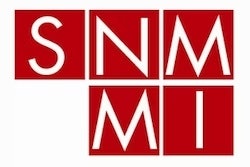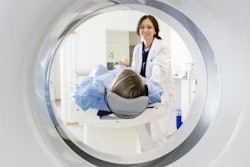Nuclear medicine technologists are being advised that not just any meal works for patients before gastric emptying scintigraphy (GES), a common imaging procedure to evaluate how ingested food moves through the stomach.
In a recent article published March 1 in the Journal of Nuclear Medicine Technology, Jena-Lee McKee, of Dyersburg Hospital in Tennessee, and Mary Beth Farrell, of the Intersocietal Accreditation Commission in Ellicott City, Maryland, advised technologists that special-order meals will not deliver accurate results and will serve up a “buffet of confusion” and irreproducible results.
“Stop squirting Tc-99m-SC on whatever,” the authors encouraged.
GES is a nuclear medicine imaging exam performed to assess gastroparesis, a condition that affects the normal spontaneous movement of the muscles in the stomach. Recommendations call for a special meal prior to the exam consisting of liquid egg whites cooked with technetium-99m (Tc-99m) sulfur colloid (SC). Cooking allows the protein in the egg whites to bind with the Tc-99m-SC so that it can be tracked by imaging.
Yet according to a recent review, GES meal protocols in hospitals across the U.S. vary widely, with some laboratories opting to instead provide patients with oatmeal, grits, Egg McMuffins, turkey sandwiches, peanut butter, and jelly sandwiches, and even meatballs, the authors noted.
“If the Tc-99m SC is not bound to the egg whites, the study is basically a liquid gastric emptying study, in which liquid empties from the stomach more quickly,” they wrote.
Several reasons may be involved in why laboratories do not comply with the GES meal guideline, which was published by the Society Society of Nuclear Medicine and Molecular Imaging (SNMMI) in 2009. Patients may require an alternate GES meal because of an egg allergy or gluten intolerance, or patients may follow vegan, keto, or Mediterranean diets, for instance.
Nonetheless, laboratories using differing meal contents must establish their own reference values in healthy patients, the authors wrote.
Ultimately, meal composition, specifically volume, caloric content, and fat content, significantly affects the rate at which material empties from the stomach. Liquids, proteins, and carbohydrates empty more quickly than solids, fiber, and fats, the authors wrote.
“Unless your laboratory has validated the reference values and ensured firm binding of the Tc-99m-SC to atypical ingredients, please follow the standardized solid gastric emptying meal and preparation method specified in the GES guideline,” the authors concluded.
Click here for the full study.




















